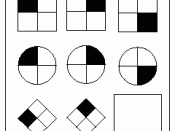Scholars have attempted for many years to gain an understanding about the nature of intelligence; and they have yet to agree on a single definition or theory. Many theorists analyze the results of intelligence tests and identify clusters of abilities. Others believe that intelligence encompasses many abilities that cannot be captured by tests. (Encarta msn, 2007) In this paper, we will be exploring two theories of intelligence; Charles Spearman, who proposed that intelligence, consists of two factors, and Howard Gardner who proposes that there are seven intelligences.
Charles Spearman was the first to offer a tenable psychometric definition of intelligence. (Charles Spearman, 2007) His approach emphasizes measurement of intelligence and individual differences in intelligences. It employs a statistical technique known as factor analysis. The technique (factor analysis) attempts to determine the factors that contribute to a group of test scores. He concluded that intelligence consisted of two factors; g factor which is general intelligence and the s factor which is specific abilities.
The g factor is an intellectual ability that Spearman claims to be in inherited and influences all around performances and s factor is verbal and mathematical abilities. Spearman considered the g factor to be the to be the most important of the two. (Intelligence, n.d.)Howard Gardner on the other hand explored cognition in a very different direction than that associated with psychometric testing. He views intelligence as "the capacity to solve problems or to fashion products that are valued in one or more cultural setting". (Smith, 2002) Gardner created a list of seven intelligences, they are as follows; linguistic intelligence (words), logical-mathematical intelligence (numbers or logic), bodily-kinesthetic (physical), spatial intelligence (pictures), musical intelligence (music), interpersonal intelligence (social), and intrapersonal (self-reflection). (Armstrong, 2002) The first two intelligences are usually valued in learning institutions, the following three...


